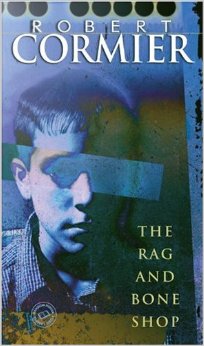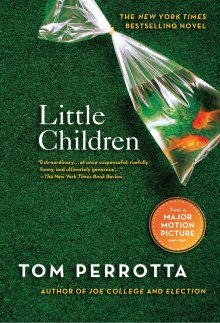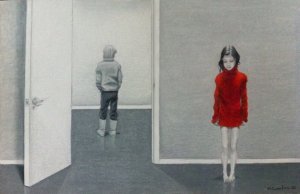
Rating: A-/ ***Warning- This is more of a comprehensive discussion of the film Spider than a actual review. Spoilers should be expected.*** First off, I adore Ralph Fiennes. I really just love the guy. I think he’s one of the best (if not actually the best) actors of today. I just rediscovered the greatness of Cronenberg’s psychoanalytic thriller Spider, I’m going to use this opportunity to talk about why I think Spider was one of Fiennes’ best performances and one of his most daring film endeavors. I’m also going to discuss what made Spider so great and look at the layers of meaning the psychology of this film provides. Let this be my last warning; this is going to be a spoiler laden post. If you haven’t seen this film yet and want to, avoid this review like the plague. Thank you.
When we first meet Spider (Ralph Fiennes) as he gets off a train, he seems very small and vulnerable, one of society’s undisputed outcasts. Nicotine-stained fingers, raggedy old coat, stubbly, bewildered face- he looks like he wishes he cold just sink into the ground and disappear. We can also see clear as day that not all is right with him psychologically, as he continually mutters incomprehensibly to himself (turn on your subtitles!) and doesn’t seem totally cognizant of his surroundings. He’s definitely out of his element, and rightfully so- Spider has just been released from an insane asylum that he was committed to since childhood, and is being placed in the care of Mrs. Wilkinson (Lynn Redgrave,) a crusty old woman who owns a halfway house for the mentally disturbed.
The house could use a spruce-up and Mrs. Wilkinson could use some work on her bedside manner. She treats the patients like naughty children who constantly need to be berated and told off. Spider begins reexamining events that placed him in the care of the state by becoming an ‘observer’ of his childhood, following his boy self around the familiar streets of his youth and sitting in on conversations between people that occurred at that time, and some that didn’t. This is where the brilliance of this movie lies, for as soon as we are introduced to his parents (Miranda Richardson and Gabriel Byrne) we are immediately placed in the shoes of an unreliable narrator. While his mum is long-suffering, beautiful, and kind, his father Bill is a philandering alcoholic and all around jerk who Spider competes with for the affections of his mother.
In a series of events that young Spider couldn’t possibly have been present for, we find that Dad is screwing a local floozy named Yvonne (also played by Miranda Richardson) and that they kill Spider’s saintly mother when she catches them making it in the garden shed. These scenes, and the subsequent scenes where Yvonne takes Mrs. Cleg’s place as Spider’s new ‘mother,’ are ludicrously over-the-top and almost cartoonish in nature. Juxtaposed with the hyperrealistic scenes where Spider himself is present, these parts seem to make no sense unless you take them at face value- that Spider is making them up. That they came out of the mind of a naive, inexperienced, and mentally ill man who has spent most of his life in an institution.

Yvonne (despite being played by the same actress who played the mother) is slutty, coarse, and rendered with make-up and costume design to be actually fairly unattractive. The infinitely well-meaning Mrs. Cleg is superior in every way to this common street whore; of this Spider is convinced. So he sets out to murder Yvonne by turning the gas stove on as she sleeps, only to find he has murdered his mother and ‘Yvonne’ as he knows her never existed. Yes, maybe he was jokingly flashed by a woman similar to his incarnation of Yvonne (in fact, ‘Flashing Yvonne’ is played a by a whole different actress than Richardson, Allison Egan) and his mind did the rest of the work. Building upon this event he created the ultimate harlot, the woman who would stand by as his dad killed his mom and insist he call her ‘mother.’
So what do I think? I think Spider’s oh-so-virtuous mother became alcoholic and bitter, creating ‘Yvonne’ in his mind and causing him to believe that his dad murdered his mom and replaced her with an uncaring, promiscuous duplicate. Spider obviously has the hots for his mom on some subconscious level, brushing her hair and watching her put on make-up adoringly and eyeing her as she tries on a slinky nightgown. She became boozy and hard due to her marital problems with her husband and his love of going to the Dog and Beggar and drinking. Someone had to be blamed, and the issue had to be put in more black-and-white terms so Spider could understand it.
There’s only one thing about this movie that confuses me, and that’s the scene where Spider’s in a restaurant looking at a picture of a green Yorkshire field. Suddenly he’s standing in a field identical to the one in the picture, hanging out with a couple of old men who don’t particularly seem to have their mental faculties. I think that he met the men at the asylum (I believe one of these guys was the one wielding a piece of broken glass in the flashback.) He imagined them in a grassy field and used some of the dialogue he had heard from them in the scenario. I’m also very curious whether Spider realized what he had done to his mother (he does refrain from braining Mrs. Wilkinson, who he imagines as Yvonne, with a hammer) or whether the big reveal was just a tip-off to the audience and Spider is as lost as ever.
I don’t think it should be surprising to you that Ralph Fiennes is incredible in this movie. He shows a gift for portraying debilitating mental illness with a nuanced sleight of hand that is not generally present in these kinds of performances. So that’s it. I’ve explained why I think Spider is one of the more complex psychological thrillers I’ve seen in my life, and I’ve offered some explanation to the meaning of the events presented in this movie. Liked this discussion? Have any thoughts? Want me to write another like it? Stop by and tell me in the comments!
















